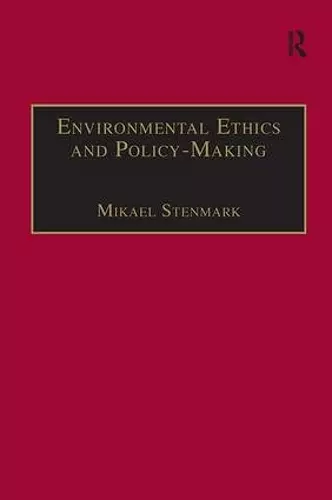Environmental Ethics and Policy-Making
Format:Hardback
Publisher:Taylor & Francis Ltd
Published:7th Feb '02
Currently unavailable, and unfortunately no date known when it will be back
This hardback is available in another edition too:
- Paperback£56.99(9781138277335)

Environmental issues raise crucial questions. What should we value? What is our place in nature? What kind of life should we live? How should we interact with other living things? Environmental management and policy-making is ultimately based on answers to these and similar questions, but do we need a new ethics to be able overcome the environmental crisis we face? This book addresses these important questions and explores the values that decision-makers often presuppose in their environmental policy-making. Examining the content of the ethics of sustainable development that the UN and the world’s governments want us to embrace, this book examines alternatives to this kind of ethics, and the differences in basic values that these make in practice. Offering a detailed analysis of the ethics that lie behind current policy-making as it is expressed in documents such as Agenda 21 and the Rio Declaration, this unique contribution to the field of environmental studies shows how different environmental ethical theories support different goals of environmental management and generate different policies when it comes to population growth, agriculture, and preservation and management of wilderness areas and endangered species. Mikael Stenmark concludes that policy-makers must take more seriously the value assumptions and conflicts connected to environmental issues, and state explicitly on what values their own proposals and decisions are based and why these should be accepted. Those studying environmental issues or environmental philosophy will find this accessible text invaluable in presenting a clear understanding of environmental ethics and contemporary applications and policies.
’Stenmark provides the most extensive and penetrating analysis of how environmental ethics informs environmental policy and sustainable development. What people do depends on why they do it. There is often critical divergence between anthropocentric, biocentric, and ecocentric ethical perspectives. Different convictions can involve different duties, here applied to concerns about population, future generations, agriculture, endangered species, and wilderness. Here is bridge-building from principle to practice, par excellence.’ Holmes Rolston, III, University Distinguished Professor, Colorado State University, USA
ISBN: 9780754605638
Dimensions: unknown
Weight: 408g
168 pages